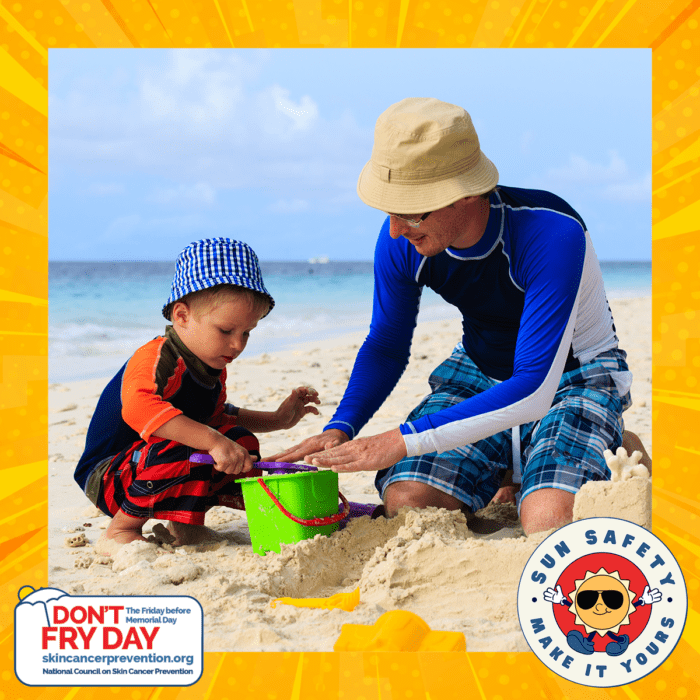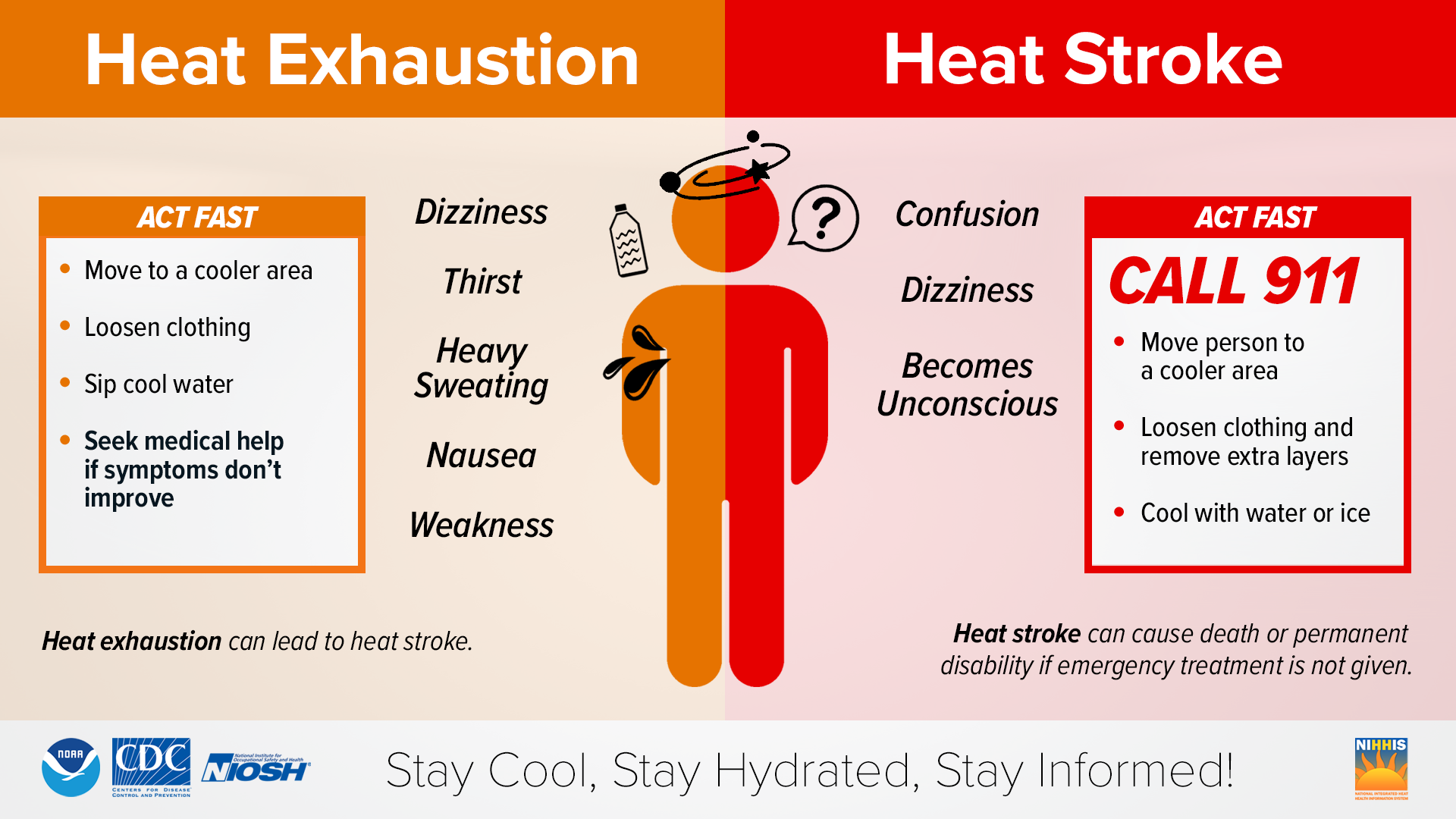Tips to protect yourself from sunburn and heat stress
The sun’s UV rays can cause sunburn and damage your skin in as little as 15 minutes, while making you more susceptible to dehydration and heat related illness, such as heat exhaustion and heat stroke. The sun is also a cause of skin cancer, the most common form of cancer in the United States, according to the Centers for Disease Control and Prevention.
The Don’t Fry Day campaign from the National Council on Skin Cancer Prevention and its broad coalition of member organizations and federal agencies, including NOAA’s National Weather Service, is to provide information and tips to protect against sunburn and heat stress. This national campaign takes place each year on the Friday before Memorial Day, which is generally considered the kick-off to summer.
 |
 |
| Don’t Fry Day, the National Council on Skin Cancer Prevention’s social media campaign effort. |
|
Don’t Fry Day is a great time to review best practices to stay safe and healthy in the sun and heat during the upcoming summer season.
Don’t Fry Day sun and heat safety tips:
 |
|
National Weather Service safety graphic on the signs of heat exhaustion and heat stroke. |
Be on the lookout for signs of heat-related illness this summer, and know what to do if you experience it. Populations that are especially vulnerable to heat impacts include those who are pregnant, newborns, children, the elderly, and people with chronic medical conditions. Check out these NWS heat safety tips and resources for more information.
NOAA, in collaboration with the CDC, recently unveiled a new heat health online tool for the contiguous U.S. called HeatRisk. HeatRisk is a simple, colored-coded and numeric scale that warns the public of the risk for heat impacts over the next seven days, so people can make informed decisions to protect themselves from sweltering heat waves this summer
Wherever your outdoor summer adventures take you, make sure you know the heat forecast and take protective action to avoid skin cancer and heat-related illness.
Media Contact: Michael Musher, NOAA Communications, michael.musher@noaa.gov